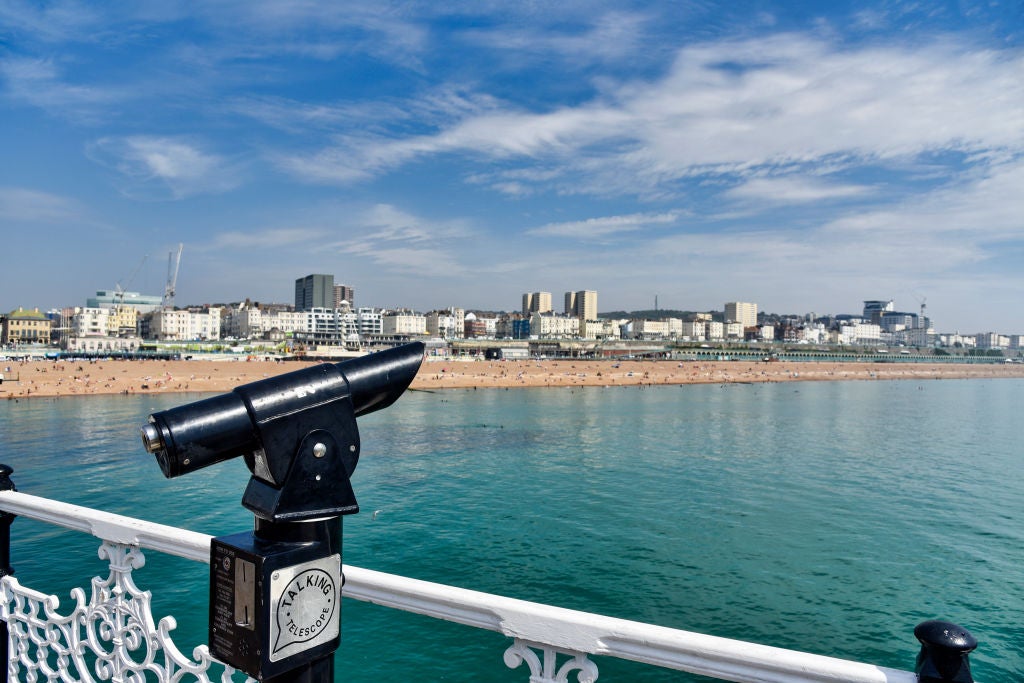
The UK’s so-called Silicon Beach, Brighton, has been on investors’ radars for many years now, and economic shifts caused by the Covid-19 pandemic have only amplified this.
Brighton has a well-established reputation as one of the UK’s best places to live and work – as well as being one of the UK’s most entrepreneurial cities, with the highest proportion of creative small and medium-sized enterprises (SMEs) in the country. This is why it was named the start-up capital of the UK and, this year, ranks in the top ten UK cities with prospects for economic growth.
One of Brighton’s crowning jewels is its pool of 40,000 students at the University of Brighton and the University of Sussex, providing rich pickings for businesses based in the city, of which there are a growing number. Due to changing work habits and priorities triggered by the Covid-19 pandemic (flexible working and quality of life), Brighton is seeing an influx of companies relocating or expanding to the city as they reduce their central London footprint.

Discover B2B Marketing That Performs
Combine business intelligence and editorial excellence to reach engaged professionals across 36 leading media platforms.
In fact, Silicon Beach has been rated as the most attractive location in South East England to set up a satellite office post-pandemic – beating other prominent cities such as Oxford, Cambridge, Royal Tunbridge Wells and Reading to the top spot.
“We have long believed in the potential of Brighton,” says Rob Sloper, development director at U+I, a property developer that is building the first new office space in the city since, quite shockingly, 2016. “The city’s unique blend of talent, culture and well-being credentials saw us choose Brighton as home to the first Plus X innovation hub.
“The only thing that can hold back Brighton now is a lack of contemporary office space. There is a huge opportunity for the property sector to help the city continue to grow by creating high-quality facilities that businesses need, like those at Plus X. Businesses want to be where their teams feel enriched, so providing the right mix of uses around offices is also vital in harnessing new enterprise clusters in the city.”
Plus X is a purpose-built innovation hub at Preston Barracks that provides the bespoke workspace, workshops, technology and wrap-around innovation support needed to help Brighton businesses grow and thrive. In short, it is far, far more than just a desk space model.

US Tariffs are shifting - will you react or anticipate?
Don’t let policy changes catch you off guard. Stay proactive with real-time data and expert analysis.
By GlobalDataAddressing Brighton’s real estate problem
Brighton’s lack of new offices has the potential to significantly stymie the city’s ability to attract and retain growing businesses. In fact, some 80% of local business leaders don’t think there is enough high-quality office space to cater to their needs.
There is, therefore, a significant opportunity for investment in Brighton and the property sector in particular, which is why regeneration specialist U+I developed two landmark schemes, which together will contribute a £480m gross value add to the local economy over the next ten years – creating a halo effect that it is hoped will radiate across the city long into the future.
Alongside Plus X, the company has created a one-hectare, mixed-use neighbourhood, Circus Street, through a groundbreaking partnership with Brighton and Hove City Council and the University of Brighton.
The £130m development provides 2,750m2 of office space, alongside new homes, an eclectic range of independent shops and restaurants, the first new publicly funded arts building in Sussex in over a decade, as well as public displays by celebrated artists such as Anthony Gormley and Alex Chinneck. It is already home to global tech company Hyve, a fast-growing business named as “one to watch” by the Sunday Times in the Profit Track 100 list.
“Having a really great working environment is so important to us when it comes to attracting and retaining the talent that the company needs to continue to grow,” says Jon Lucas, co-founder and director of Hyve. “We wanted to create a ‘home from home’ for our employees at Circus Street, with stunning 360-degree views across Brighton and out to sea as well as chill-out zones with various areas for people to collaborate, socialise and relax.
“We broke the mould of choosing [to leave] a corporate London office in favour of Brighton’s ever-developing digital hub for SMEs. Having topped the list of happiest places to live and work in, Brighton offers our employees a fantastic work-life balance, in turn promoting good health and well-being. The air is greener, it is less populated and there is both the sea and the scenic countryside to enjoy – we even have a company boat with jet skis for Friday afternoon fun!”
The hipster capital of the world
Brighton topped MoveHub’s survey to find the hipster capital of the world, beating cities like Portland, Seattle and even Lisbon in the tongue-in-cheek Hipster Index. It is also a tech bro’s dream come true, with more than 90% of premises having ultra-fast broadband speeds of 100Mbps versus a national average of 53%.
People make a place, but businesses contribute too, which is why Hyve, Circus Street and Plus X exemplify Brighton’s thriving economy. In these companies, creativity, innovation and commercial success go hand in hand. However, their success also highlights the city’s key challenge: an ongoing need for more office space. This is a good problem to have but a very real one that needs resolving if the city is to fulfil its rich potential.





